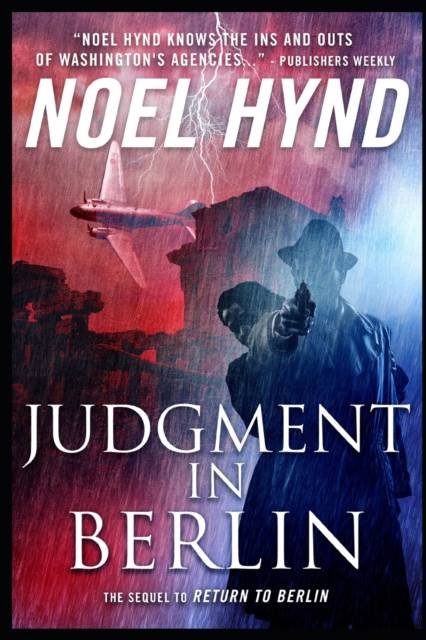
- Retrait gratuit dans votre magasin Club
- 7.000.000 titres dans notre catalogue
- Payer en toute sécurité
- Toujours un magasin près de chez vous
- Retrait gratuit dans votre magasin Club
- 7.000.000 titres dans notre catalogue
- Payer en toute sécurité
- Toujours un magasin près de chez vous
Description
'Judgment in Berlin' is the third book in Noel Hynd's Berlin series.It is 1948. World War Two is over, Hitler is dead. The Nuremberg trials have concluded. The Marshall Plan attempts to rebuild Europe, though Germany remains occupied by American, British, French, and Soviet military forces. William Thomas Cochrane, an American intelligence agent, is in England with his wife, Laura, visiting friends and family. Bill Cochrane has accepted an invitation to be a guest lecturer for one year at the University of Cambridge. But when summer arrives, so does the first major international crisis of the postwar years. Under Joseph Stalin's orders, the Soviet Union employs the Red Army to block the Western Allies' railway, road, and canal access to the sectors of Berlin under Western control. The Berlin Blockade is retaliation for the Western powers' attempt to institute a pro-Western currency, the Deutschmark, throughout Germany, including Berlin, the former capital. The Soviets offer to end the blockade if the Western Allies withdraw the newly introduced currency from West Berlin. The Allies refuse. But there is no mistaking Soviet tenacity. Soviet Foreign Minister Vyacheslav Molotov proclaims, "What happens to Berlin, happens to Germany. What happens to Germany, happens to Europe.""And what happens to Europe, happens to the world," President Harry Truman angrily retorts in Washington. "If we can't supply Berlin by train or truck or boat, well, then, we'll damned well bring everything in by airplane!" There is no mistaking the irony: the United States may have been on the winning side of World War Two, but the postwar years quickly have turned old alliances upside down. Americans now defend the enemy capital they bombed just a few years earlier. Truman's words are barely dry in the ink of world newspapers when American and British military aircraft begin a joint operation in support of Berlin, the Berlin Airlift, one of the most iconic "peacetime" operations of the twentieth century. Military aircrews from Canada, New Zealand, France, and South Africa soon join the Americans and the British, flying more than two hundred thousand sorties in the next fifteen months. The airlift will provide West Berliners essentials such as fuel, fresh water, and food. But is it also a potential flashpoint for another world war? As the airlift begins, Bill Cochrane's phone rings in the middle of a balmy, summer night in Cambridge. The lecturing plans and a month of vacationing will have to wait. There are other events surrounding the Blockade and the Airlift that do not make the front pages, and those are the events dealt with in back alleys and dark corridors by men like Bill Cochrane.Cochrane's country is calling him back to active duty for a special assignment in the newly divided Germany, one which will take him behind newly drawn enemy lines and into a perilous netherworld of ruthless black marketeers, petty criminals, prostitutes, ex-Nazis, and Soviet spies.Cochrane has participated in dangerous covert operations in Germany twice in the past, barely escaping with his life both times. But now things are different. Onetime Soviet peers are now suspected enemies and an assortment of ex-Nazis may or may not be his new best friends. Old acquaintances from his previous visits to Germany reemerge, but why? An old gang of adversaries still lurks in the shadows that surround Cochrane's new operation, waiting perhaps for a moment of lethal payback.Espionage fans who read and enjoyed 'Flowers from Berlin' and 'Return to Berlin' will savor the return of Thomas Cochrane. Rich in detail, compelling in its re-creation of history, 'Judgment in Berlin ' is historical World War Two spy fiction at its best. ***"The Berlin Airlift was the first clear Soviet defeat in the Cold War. It's the one thing that the Soviets started and failed to finish." - Diplomatic historian John Gaddis of Yale University.
Spécifications
Parties prenantes
- Auteur(s) :
- Editeur:
Contenu
- Nombre de pages :
- 410
- Langue:
- Anglais
Caractéristiques
- EAN:
- 9798463147233
- Date de parution :
- 23-08-21
- Format:
- Livre broché
- Format numérique:
- Trade paperback (VS)
- Dimensions :
- 152 mm x 229 mm
- Poids :
- 544 g







